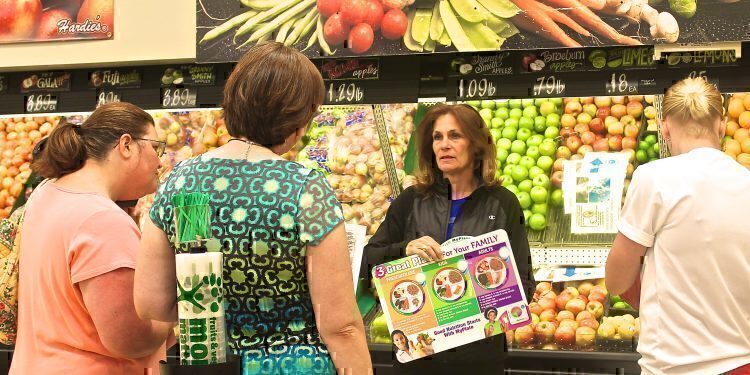4. Packaging lies.
Labels are meant to draw in the consumer. They are nothing more than little commercials aimed at your visual sense. Just because the packaging is green, says “natural” or the words diet or healthy on it, doesn’t mean it’s good for you. Groups like The Center for Science in the Public Interest are lobbying congress to change the way manufactures label their products so it’s more truthful and less marketing.
The manufacturer labels are meant to trick you into buying their product over another. Take for instance cereal or crackers – there are hundreds of options for us to choose from. The packaging gives us the illusion that we are eating healthy or it’s packed with nutrition. The truth is all cereals and crackers are over processed and full of preservatives – with maybe the exception of organic labels.
5. Organic matters, but there are exceptions. What does organic mean? Simply stated, organic produce and other ingredients are grown without the use of pesticides, synthetic fertilizers, sewage sludge, genetically modified organisms, or ionizing radiation. Animals that produce meat, poultry, eggs, and dairy products do not take antibiotics or growth hormones
When you buy organic, you are buying “clean” food. Most commissaries have an organic section or offers organic alternatives. You can find organic items mostly on the top or bottom shelves in stores. They are rarely right in front of you – that is on purpose. Yes, it can be more expensive to buy organic, but your health benefits out weigh the cost in the long run.
To help with your wallet, Kathy Viau suggests that you should buy organic for the products you eat the most. For example, if you eat peanut butter or drink milk every day, you should probably make the switch to organic. However, if you use rarely beans in your diet than buying non-organic is acceptable.
Learn about the Clean 15 and the Dirty Dozen: There are 15 fruits and vegetables that you don’t need to buy organic. Experts have found little trace of pesticides or chemicals on them in the grocery stores; such as watermelon, sweet peas, mangos and avocados. In contrast, there are 12 fruits and vegetables that full of pesticides and chemicals, even after washing them with water. Fruits such as strawberries, apples, spinach and cherries should be purchased organic if you’re looking to make the healthiest choice.
For a full list of Clean 15 and Dirty Dozen go to https://www.pbs.org/wnet/need-to-know/health/the-dirty-dozen-and-clean-15-of-produce/








